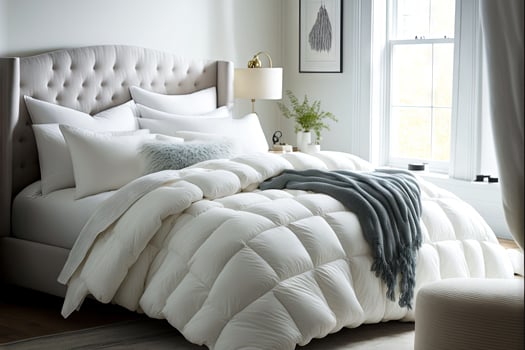
If you have a herniated disc that causes pain, numbness, or weakness in your back, legs, hips, or feet, you may need discectomy surgery to remove the damaged part of the disc and relieve the pressure on the spinal nerves. A discectomy is a common and effective procedure that can help you restore your quality of life. After the surgery, you will need to take some time to recover, and during this period, it is crucial to have the necessary items at home to aid your recovery. This article explores some of the essential things you should have at home after discectomy surgery.
Comfortable Clothing
One of the things you will need at home after discectomy surgery is comfortable clothing. After surgery, you will likely experience some pain, and you will want to wear loose-fitting clothes that do not restrict your movement. You may also want to invest in some slip-on shoes or sandals, as bending down to tie your shoelaces may be challenging.
Supportive Pillows
Supportive pillows can help you maintain a comfortable sleeping position after discectomy surgery. You may need to sleep on your back or side, and having pillows to support your head, neck, and knees can help you stay in a comfortable position. Avoid sleeping on your stomach or using a recliner. You may also want to have a firm chair with armrests and a low table nearby for reading, watching TV, or working on your laptop.
Ice Packs
Ice packs are essential after a discectomy or a less invasive microdiscectomy to reduce swelling and alleviate pain. You can use gel ice packs or frozen peas wrapped in a towel to apply to the affected area.
Medications
Your doctor will prescribe pain medication to manage your discomfort after discectomy surgery. Make sure you have the medication on hand and take it as prescribed. You may also need other medications, such as stool softeners to prevent constipation, which is a common side effect of pain medication.
Personal Hygiene Items
During your recovery, you may have difficulty bending, twisting, or reaching, so it is important to have personal hygiene items easily accessible. These include items such as a long-handled shower brush, a shower chair, and a raised toilet seat.
Handheld Showerhead
A handheld showerhead can be a useful tool to have during your recovery, as it allows you to shower while standing or sitting. It is also easier to use than a fixed showerhead because you can direct the water where you need it.
Reacher Grabber
A reacher grabber is a handy tool that can help you pick up items from the floor or reach things on high shelves without bending or stretching. This can prevent strain on your back while you recover.
Meal Prep Supplies
During your recovery, you may not feel up to cooking or preparing meals. Having some basic meal prep supplies, such as a microwave, a slow cooker, and some premade meals, can help you eat healthy and nutritious meals without too much effort. You will need to eat a balanced diet that includes plenty of fiber, protein, calcium, and vitamin D to nourish your body and bones.
Recovering from discectomy surgery can be challenging, but having the right items at home can make the process more manageable. Remember to follow your doctor's instructions and give yourself plenty of time to heal. Back surgery recovery time varies among individuals and depends on factors such as disc height and the size of the hole left in the outer ring of the disc after surgery. If the hole in the disc is larger than a standard pencil eraser, the patient has a significant risk of experiencing a reherniation, which often requires additional surgery. Fortunately, there is a new treatment available. Barricaid is a bone-anchored device shown to reduce reherniations by closing the hole in the disc after a discectomy, and 95 percent of Barricaid patients did not undergo a reoperation due to reherniation in a 2-year study timeframe. This treatment is done immediately following the discectomy—during the same operation—and does not require any additional incisions or time in the hospital.
If you have any questions about the Barricaid treatment or how to get access to Barricaid, you may ask your doctor or contact us at 844-288-7474.
For full benefit/risk information, please visit: https://www.barricaid.com/instructions.


Comments